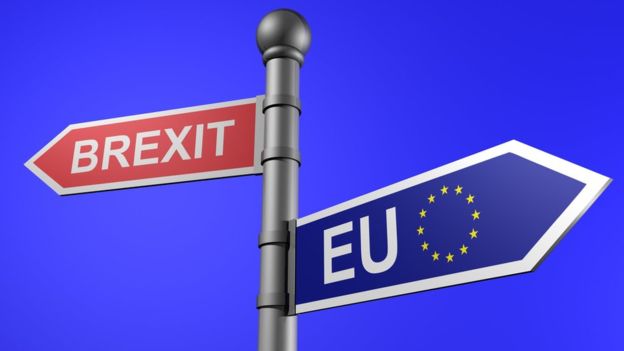John Fuller Carr examines the divisions that plague establishment politicians and takes to task the Labour Representation Committee for its cowardly, nationalist retreat
Europe continues to enrage, divide and confuse politicians of both the right and left. The present situation is easy to summarise. Under severe pressure from the United Kingdom Independence Party, David Cameron has committed the Tories to an in-out referendum, but not until after the 2015 general election. If returned to No10, he solemnly pledges to negotiate a root-and-branch reform of Britain’s relationship with Brussels. A forlorn hope. François Hollande crushingly informed him at their January 2014 summit, that renegotiating EU treaties “is not a priority for France”.1
Smelling blood, Nigel Farage says he will turn the May 2014 European election into a referendum against Bulgarian and Romanian migrants and continued EU membership. Worryingly, an Open Europe poll puts Ukip on 27% – significantly ahead of Labour (23%) and the Tories (21%).2 Meanwhile, Ed Miliband made a show of expressing contrition over the last Labour government getting it “wrong” over EU immigration. Prompting some Labour MPs – eg, Rochdale’s Simon Danczuk – to join the “send people back” campaign. Tom Harris (Glasgow South) even declared himself a member of the “Romaphobe club.”3
Clear direction
Establishment politicians find themselves confronted with a fundamental fault line. European integration has advanced qualitatively since the Treaty of Rome was signed by Belgium, France, Germany, Italy, Luxembourg and the Netherlands in 1957. What was a mere customs union – born of the cold war – has become a German-dominated giant, embracing 500 million people and 28 countries, with free trade and the free movement of labour. It is the world’s biggest home market, with a combined GDP of about $17.2 trillion – as compared to $16.7 trillion for the US and $5.9 trillion for Japan.
Politically, however, the EU resembles something like the creaking Austro-Hungarian empire, which straddled 19th century Mitteleuropa. The EU is an amalgam of unevenly developed state units. But the direction is clear. Wider, in the form of candidates like Iceland, Serbia and the Former Yugoslav Republic of Macedonia. Deeper, in the form of politico-legal institutions. The EU has a council of ministers, the European Commission, an elected parliament, a European Court of Justice … and then, of course, there is the euro: a currency which unites 18 countries.
Behind the integration lies a blood-drenched past. Twice in the 20th century Europe has been the cockpit of global conflict. Both times Europe was left devastated, exhausted and much reduced. World War I saw the collapse of the Russian, German and Austro- Hungarian autocracies. The main focus of world economic activity shifted from Europe to the Atlantic and America. Twenty-five years later, under the terms of the Yalta agreement, half the continent was incorporated into the Soviet Union’s sphere of influence and, through bureaucratic revolution, ‘sovietised’.
As to western Europe, it was shorn of the glories – and booty – of empire. Humiliatingly it had to rely on the US nuclear umbrella to counter the much exaggerated threat from the east. However, avoiding another internecine conflict and creating a bulwark against bureaucratic socialism drove the states of western Europe, in particular Federal Germany and France, towards an historic compromise.
There is, needless to say, another factor at work. Europe both cooperates and competes with the US and Japan. They might have smaller home markets, yet, due to an historically constituted nationality and an economically centralised territory, they are blessed with a single working class and a single political and business elite. Labour power, like every other commodity, can easily move and therefore be bought and sold anywhere within the US or Japan. Europe is divided not only by history, but culture. Commodities can freely circulate – but not the special commodity, labour-power. Language constitutes a material barrier, except for those with higher education (worst- paid labour being a not insubstantial exception). A multinational, and therefore fragmented, political and business elite constitutes a similar handicap. To be successful the EU must, as a minimum, therefore, forge a federal superstate, from where its transnationals can survive against the rising legion of foreign rivals.
The ongoing process of European integration has caused deep divisions in Britain. There were, in the late 1940s and early 50s, hubristic dreams of rebuilding the British empire. Suez 1956 put a stop to that. The US had unmistakably become top dog and would permit no imperial rivals. Barred from the Common Market in 1963 by de Gaulle’s veto, the British ruling class hung onto the conceit of being a major world power and actually managed to keep Europe divided through the European Free Trade Area. But that did not amount to a viable strategy. Britain eventually entered the European Economic Community in 1973 under Edward Heath’s Tory government (along with its Danish and Irish Efta allies). The unwritten agreement with Washington was that Britain would play the role of a US Trojan horse.
Apart from our far right around Roy Jenkins, the Labour Party was critical of the terms and conditions. Nonetheless in 1975 Harold Wilson’s government successfully fought a referendum on the issue of continued membership. The main opposition came from a Tony Benn-Enoch Powell popular front. Nevertheless, we remained officially uneasy about Europe till the leadership of John Smith and then the government of Tony Blair. A parallel shift occurred in the TUC with the appointment of John Monks.
New Labour and its coterie of middle class career politicians loyally and openly served the interests of the most competitive, most internationalised, sections of British capital. Despite his tack to the left, Ed Miliband and ‘One nation’ Labour does exactly the same.
Of the two main parties, it is the Tories who are organically split today. Though Cameron now calls for a “fundamental renegotiation” of Britain’s relationship with EU, everyone knows that, come his referendum, he will call for continued membership. That cannot be said of his revolting backbenchers. As with Ukip, his Poujardists articulate the xenophobic fears and prejudices of ‘middle England’ and uphold the interests of the least competitive sections of capital.
If the British establishment is divided, the groups, factions and sects of the left – Labour and non-Labour alike – have proved utterly incapable of providing anything like a serious alternative. In fact, the reformist and national socialist left adheres either to the most gullible or the most chauvinist positions on the EU.
Instinctively the national socialists recognise that European integration makes a mockery of their utopian British road to socialism. Take the No2EU election bloc – uniting the Socialist Party in England and Wales and the Morning Star’s Communist Party of Britain. It is virtually indistinguishable from the Tory right, Ukip and the British National Party. No2EU wants to save the pound sterling, restore British sovereignty and re-establish immigration controls to bar European incomers.
Naturally, when it comes to the likes of Peter Taaffe, Robert Griffiths, Bob Crow and Brian Denny, this is all done in the name of socialism … but it is the socialism of fools. The best that these advocates of “workers’ rights” could achieve is a British version of Stalinism – ie, state slavery – and that imposed onto a capitalistically advanced country fully integrated into the world economy. What costs the lives of millions in the 1930s could only but be repeated as a still greater tragedy.
Civilisation would not be advanced, but barbarically thrown back. And, unfortunately, where the CPB and SPEW have led, Socialist Resistance, Respect, the Alliance for Green Socialism, Scottish Socialist Party, Solidarity, etc, have followed – to the point of a horribly self- defeating common sense.
Of course, for Marxists, proletarian socialism – as the first stage or phase of communism – is international or it is nothing. There can be no socialism in one country, because capital, as a social relationship, exists not within the nation-state, but internationally, at the level of the global economy. Bureaucratic or national socialism just brings back all the old crap, albeit in different, highly contradictory forms. That is why as long ago as 1845 Marx and Engels emphatically rejected all localist schemes and insisted, on the contrary, that: “Empirically, communism is only possible as the act of the dominant peoples ‘all at once’ and simultaneously.”4
LRC
Sadly, the leadership of the Labour Representation Committee seems to be readying itself to adopt an approach barely distinguishable from Taaffe and Griffiths. Having agreed a generally sound resolution on the EU in 2011, at its November 2013 AGM the LRC narrowly voted down a virtually identical motion in the name of “beginning” a debate on the EU. The manipulative hand of Graham Bash, Peter Firmin and co was clearly visible.
What were the politics of 2011? In contrast to the red-brown left, the LRC stood for “a Europe-wide working class response” to capitalism’s crisis. Instead of opposing “European capitalist integration”, the right answer is to “link up with other European workers in solidarity and struggle”. Moreover, those demanding withdrawal from the EU, or opposing British entry into the European single currency, were condemned for holding to “a British nationalist position”, a blunder “not altered” by tacking on a slogan like “Socialist United States of Europe”. Etc, etc.5
Now, in the name of “kicking the debate off”, we have Michael Calderbank of Brent CLP. Writing in Labour Briefing, he rightly takes to task those who have illusions in the progressive nature of the EU when it comes to labour legislation, social rights, etc … All are being “eroded and undermined”, he feigningly laments. Of course, what comrade Calderbank wants the LRC to do is to vote ‘no’ in Cameron’s referendum and bank everything on a British withdrawal.
As an aside, it is worth noting the objection Marxists have traditionally had to referendums. So-called direct democracy is a chimera in any complex society. Nuances have to be considered, likely consequences predicted and alternatives closely studied. That is why Marxists advocate indirect democracy: ie, the election of recallable representatives who are tasked with debating and deciding political positions and stratagems. Marx certainly denounced – and in no uncertain terms – Louis Bonaparte’s deployment of successive referendums to consolidate his dictatorship and excuse France’s imperial adventures.6
The wording of the referendum question is, of course, everything. Eg, to vote ‘no’ was to declare oneself opposed to democratic reforms; to vote ‘yes’ was to vote for despotism and war. Referendums bypass representative democracy, political parties and careful deliberation. Something not lost on Adolph Hitler. He managed to get a 90% mandate for his dictatorship on August 19 1934 – despite an almost unprecedented campaign of intimidation, there were millions of spoilt ballot papers.
Coloration
Inevitably, comrade Calderbank gives his endorsement of the ‘no’ campaign a socialistic coloration. Instead of “populist scapegoating” of migrants, he makes a seemingly bold call for “taking back power” and “taking control of our services and economies, on a local and national scale.”7 Does his formula amount to a post-referendum establishment of a workers’ state and the abolition of capitalism? Unlikely. Or is it an empty plea for the restoration of Keynesian economics and the politics of welfarism? Either way, the comrade says that “our membership of the EU” impedes his agenda, so “calling for a withdrawal from an international left perspective would be perfectly consistent”.8
When it comes to the LRC’s old position, the comrade dishonestly rejects any programme of fighting for a workers’ Europe as akin to banking on “adequately reforming” the “existing institutions” of the EU. An obvious non sequitur. Nevertheless, on the basis of this crude falsification, comrade Calderbank feels he can tell us what we all know. The EU is not very democratic … and he thinks it “extremely hard” to see how this can be changed.
The lack of imagination is as sad as it is palpable. Why those of us who want to take as our strategic point of departure not Britain, but the EU are supposed to believe in the reformability of the whole array of existing EU institutions remains to be established.
Apply his methodological approach to the British state. Over the last 30 years or so it has surely “eroded and undermined” the post-World War II consensus. Indeed, it is fair to say, successive British governments – Tory, Labour and Con-Dem – have been at the forefront of the neoliberal offensive both at home and in the EU. Should we therefore conclude with a call for the “dissolution” of Britain, as Welsh and Scottish nationalists do, or even a working class “withdrawal” from it?
Pitiably, comrade Calderbank unintentionally shows a naive faith in the institutions of the UK state: the monarchy, the House of Commons, the House of Lords, the judiciary, the presidential prime minister, MI5, the Church of England, the standing army, etc. Can they all be “adequately” reformed so as to pave the way for a workers’ Britain? Clearly, the implication in comrade Calderbank’s polemic is, yes, they can.
Russia
Interestingly, prior to the October Revolution of 1917, Lenin and the Bolsheviks confronted similar manifestations of national socialism. The tsarist empire was a vast prison house of nations. Nevertheless, while fighting for the right of self-determination up to and including secession, the overriding, central strategy was the cementing of the highest and most extensive workers’ unity throughout the tsarist empire – in order to overthrow the tsarist empire.
Unwittingly comrade Calderbank places himself in the camp of Joseph Pilsudski and his Polish Socialist Party. Formed in 1892, it adopted a national socialist programme for the reconstitution of an independent Poland – which had been all but partitioned out of existence at the 1815 Congress of Vienna between the the German, Austro-Hungarian and Russian empires. Rosa Luxemburg and Julian Marchlewski split with the PSP in 1893 over this perspective. Objective conditions, they rightly said, demanded the unity of workers – Russians, Poles, Ukrainians, Georgians, Letts, etc – against the tsarist empire.
In defence of the past – in particular in defence of the welfare state and the post-World War II social democratic consensus – comrade Calderbank presents a programme that would at best weaken the EU. It would, however, also weaken the European working class movement if its strongest detachments forced upon their capitalists a policy of withdrawal – a road that would lead not to a national socialist paradise, but the hell of increased national exploitation and eventually counterrevolution.
Marxists do not look back fondly to the post-war social democratic settlement. No, our programme emphasises the positive advantages of the workers being organised into the largest, most centralised states. All the better to overthrow them and begin the advance to a communist society and the inspiring principle, ‘From each according to their ability; to each according to their needs’.
The working class can only but suffer one cruel defeat after another if it confines itself to the politics of defence. We in Labour Party Marxists therefore raise the perspective of the politics of the offensive. Hence we say, to the extent that the EU becomes a superstate, so must the advanced part of the working class organise itself into a single, pan- European party in order to overthrow it.
The EU is undoubtedly a reactionary anti-working class institution. Amongst consenting Marxists that hardly needs proving with statistics concerning spending limits and welfare cuts. The real question is what attitude we adopt towards it. LPM stands for extreme democracy under capitalism. Concretely that means fighting for the levelling up of wages, substantive equality for women, the abolition of the council of ministers, a parliament with full powers and an armed working class.
Without such an approach, talk of socialism in Britain or a socialist Europe is nothing but a fraud.
Notes
1. The Daily Telegraph January 31 2014.
2. www.dailymail.co.uk/news/article-2331759/UKIP- set-European-poll-success-powers-ahead-Tories- Labour.html.
3 The Daily Telegraph November 27 2013.
4. K Marx and F Engels CW Vol 5, Moscow 1976, p49. 5. LRC Resolutions booklet November 2011, p11.
6. See Marx’s The eighteenth Brumaire of Louis Bonaparte (1852) and The civil war in France (1871). Also there is Kautsky’s Parliamentarism, direct legislation and social democracy (1893).
7. Labour Briefing February 2014.
8. Labour Briefing February 2014.






